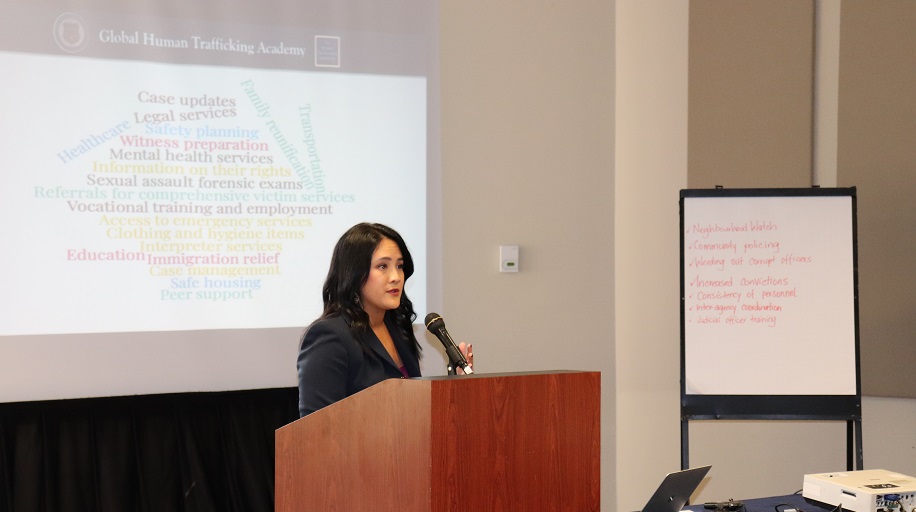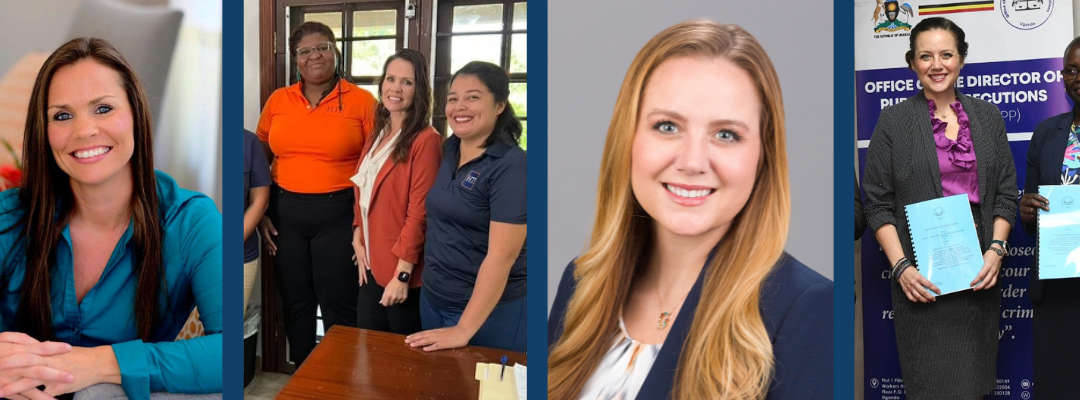For victims of human trafficking, there is no shortage of services that need to be provided to account for all aspects of recovery. In many cases, these services come from two places: either systems-based or community-based. Systems-based victim services provide a different way of approaching the services sector within human trafficking while simultaneously working in conjunction with community-based services to support survivors in the most comprehensive manner.
Marie Martinez Israelite, the Institute’s Director of Victim Services, recently conducted a Systems-Based Victim Services discussion at the 2018 Global Human Trafficking Academy. The Academy, hosted and conducted by The Human Trafficking Institute, was a unique opportunity to accelerate a country’s progress toward combatting the crime of human trafficking. Twenty-three professionals from specialized investigative units, prosecutors’ offices, and social workers participated in this two-week, intensive program where they learned cutting-edge strategies for handling human trafficking cases. During the Systems-Based Victim Services session, they learned specifically about the ins and outs of systems-based victim advocacy, including the best ways to embed services within government agencies; ways to go about finding the best service providers; and methods to limit disruptions to victim recovery.
Martinez, who has an extensive background in social work and public policy, spoke to the cohorts about systems available to victims in the context of the criminal justice system. Human trafficking cases differ from many other criminal scenarios in that there are often very specific methods of approaching the services available to victims.
Trafficking victims often need a host of services as they work to re-assimilate into the world around them. Not only are things like medical care, legal protection, and psychological security necessary but victims also need justice, safety, and assurance, in order to begin the long process of healing from mental, physical, and emotional trauma caused by their trafficker.
“It’s important to note that systems-based services are different than community-based services, although the two are complements,” explained Martinez. “We want to strive for vertical advocacy so that we can serve as effective liaisons between law enforcement agencies and services,” she said.
Ultimately, Martinez reminded the cohorts that “challenges do not equal trauma.”




